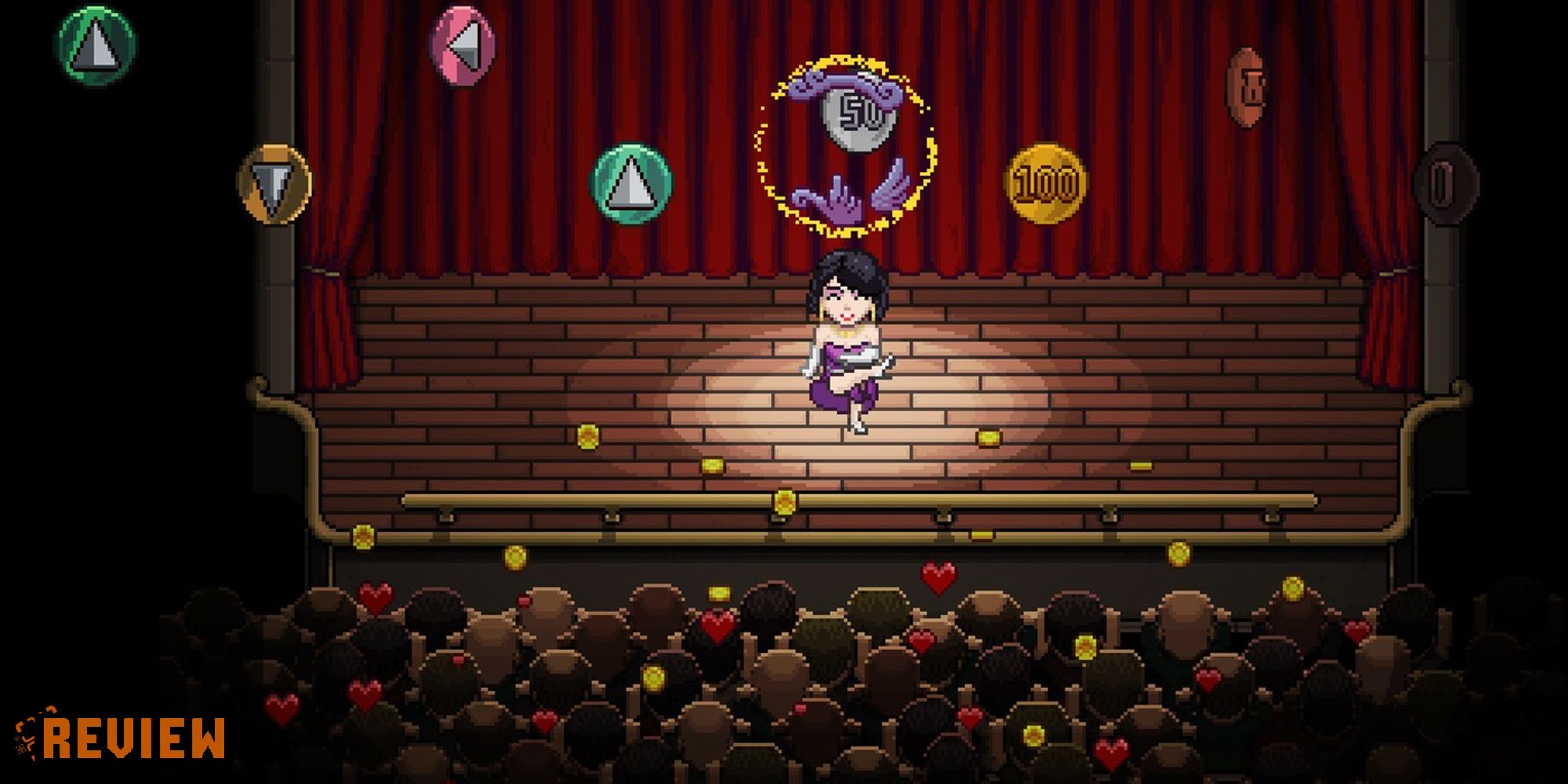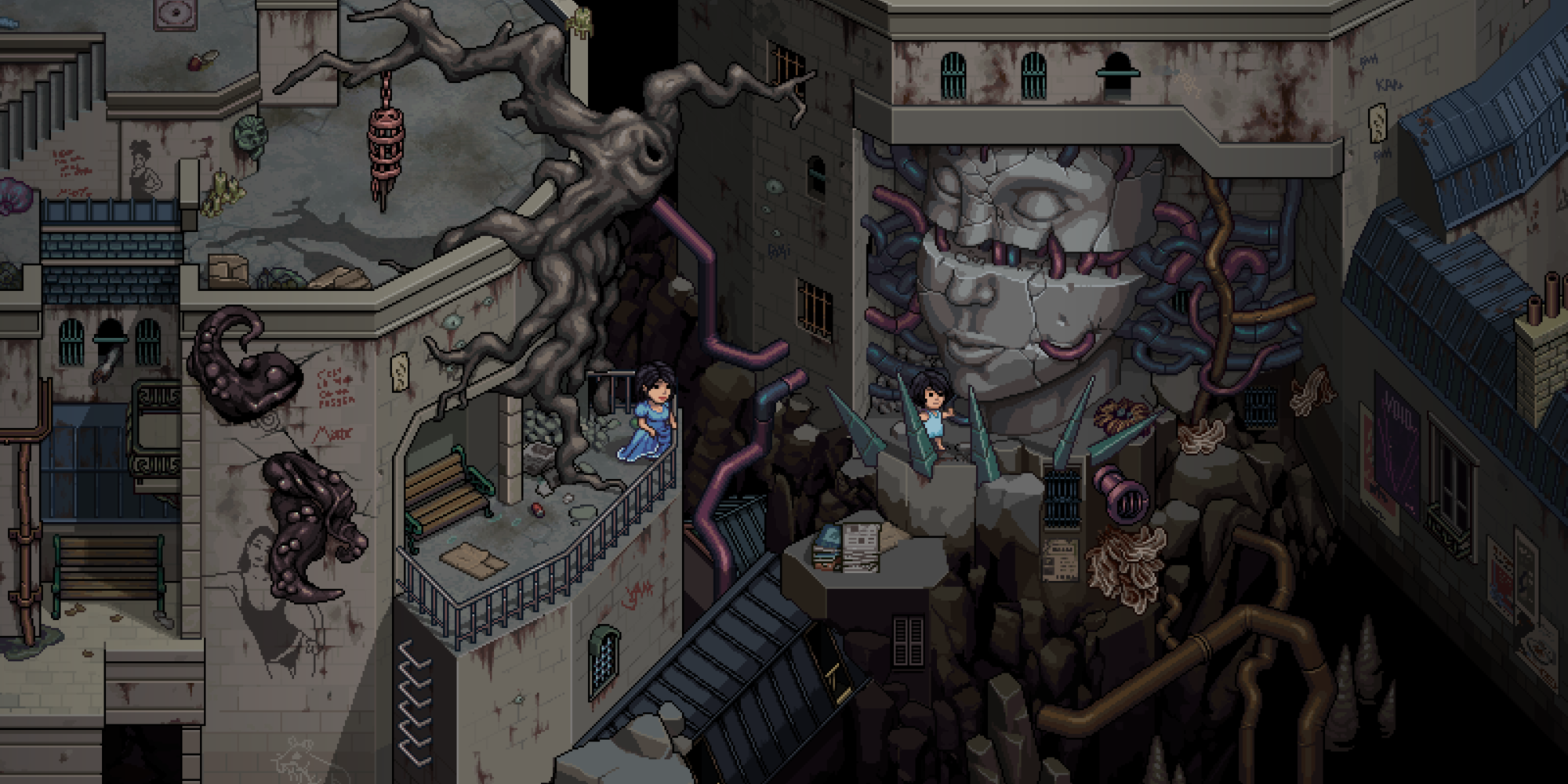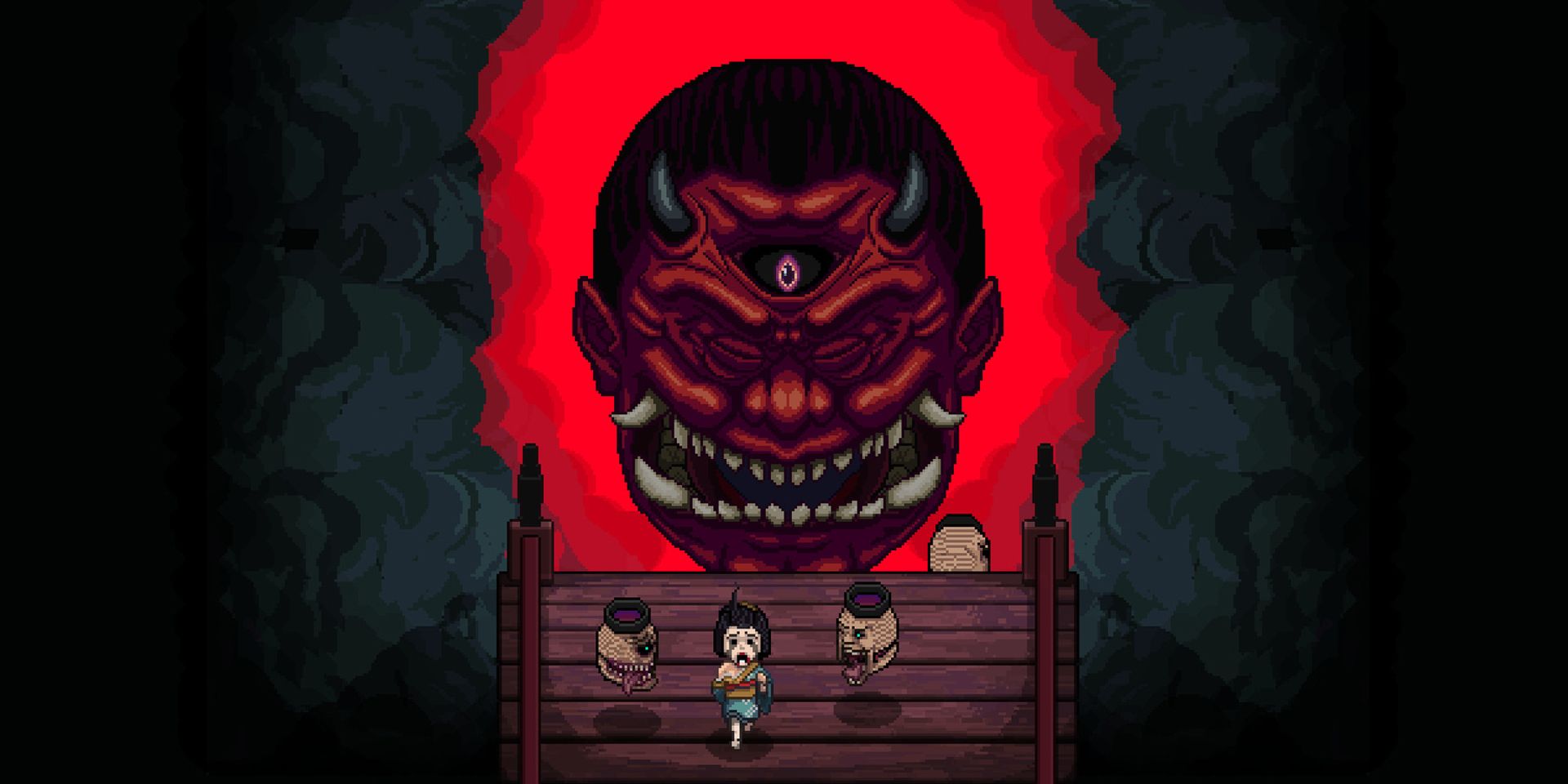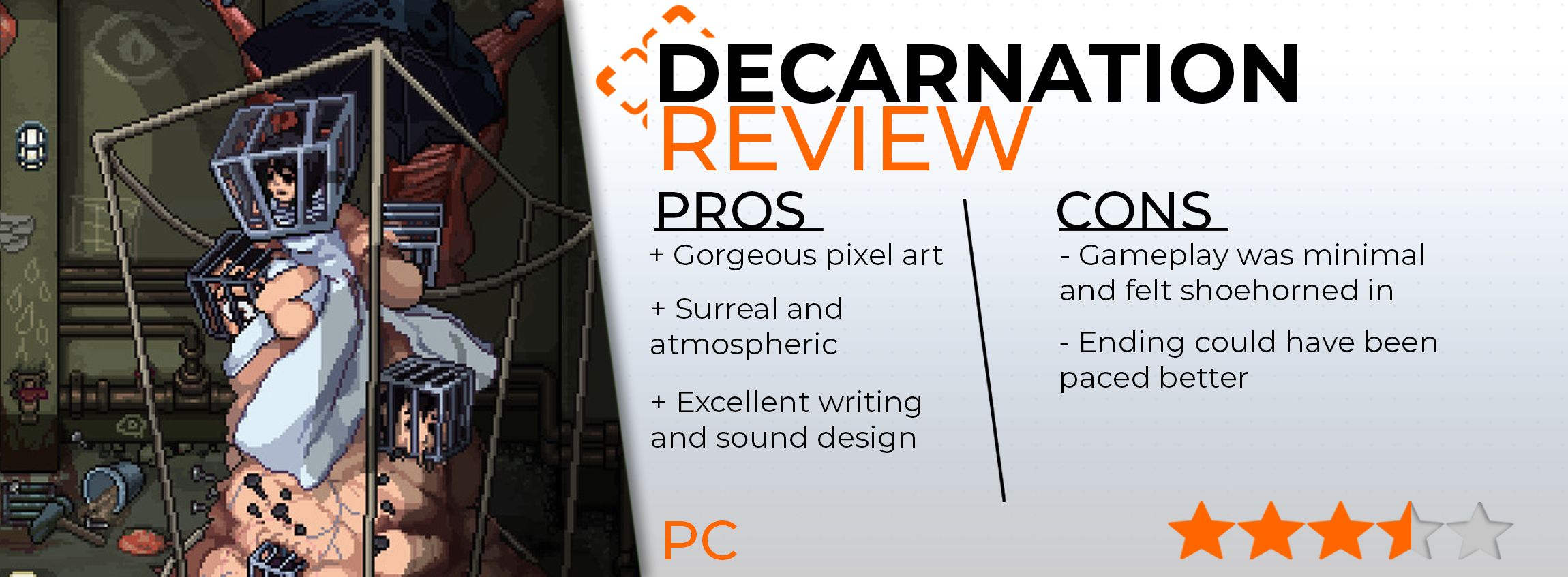Decarnation feels like bait made specifically for me. Its pixel art style reminds me of a higher-definition version of old Pokemon games, with its big heads and lovingly shaded characters, which makes you think it might be a wholesome story. It’s far from that. This story-rich horror game utilises its retro aesthetics expertly to take you off guard, creating an unsettling atmosphere that left the hairs on my arms raised. Its story is compelling, even thrilling, and I was rooting for its protagonist to survive, but the game’s art and music really carry it through to the end.
Decarnation is a horror game, but I use the word ‘game’ very loosely. I experienced it more like a pixel art piece of theatre, especially since so many of its settings seemed to be confined to small spaces, filling the game with well-designed setpieces. The game opens on Gloria, a struggling cabaret dancer in Paris in 1990, posing for a statue being made in her image. Later, she and the woman she’s dating, Joy, go to the museum to visit the statue on its first day of exhibition. When she gets there, she sees a man groping her statue, and leaves very disturbed and unable to tell Joy what happened. It’s all downhill from there, and the disconcerting settings that follow are sprung from Gloria’s mind as her mental health worsens.
This game touches on very heavy topics, so I certainly don’t recommend it for everyone. Decarnation explores everything from the objectification and commodification of women’s bodies, to binge eating, to Stockholm Syndrome, to finding strength within yourself to survive difficult situations. I found the narrative itself very satisfying, with all the elements of a psychological thriller, but I did have the feeling that this was more of a Lynchian artwork than a game, focusing on body horror and fostering a sense of dread instead of being fun to play. All the gameplay felt shoehorned in, existing more in minigames than as a cohesive part of the experience.
When you perform at the cabaret where Gloria works, you play a rhythm game. As you explore Gloria’s psyche, you encounter ghosts that chase you when you’re outside of a spotlight, and you have a small puzzle to solve to make sure you get to your destination unharmed. Occasionally, you have to use keys or your joystick to interact with cutscenes. It didn’t feel like it really fit into the story that the game was telling, and fairly often, I was left confused as to what I was supposed to do. The game’s ending feels padded with a whole lot of boring puzzles and not a lot of character development, and I was relieved when the gameplay was over and I could get back to watching Gloria do her thing.
It was easy, however, to keep playing just because of how atmospheric the game is. I was blown away by the intricately designed, beautifully drawn settings and the soundtrack, which was haunting and excellently composed. I was reminded of Satoshi Kon’s Perfect Blue, in both the game’s themes and in the physicalisation of Gloria’s mental state in her surroundings and dreams. The incredible sound design elevated that to the point where I had to play without headphones for a little while because I was getting so freaked out.
Speaking of Satoshi Kon, I did find the use of Japanese aesthetics in Decarnation very strange. We have a flashback to Gloria’s first performance at the cabaret, where she is inexplicably dressed as a geisha, and later she is chased by an oni mask while still in costume. Nowhere else in the game are there references to Japanese culture or aesthetics, and quite frankly, it felt appropriative. With a narrative reason, this wouldn’t have been strange at all, but it felt like it was there just to be there, and it left a bad taste in my mouth. I had enjoyed the story up till then, though I was put off by the puzzles and minigames, but it felt like the game had taken a big misstep here.
Decarnation is a well-written, spine-chilling adventure, but it would have been better off as an animated film instead of a game. The interactivity felt forced, but its writing, characterisation, atmospheres and settings sparkled, leaving me unnerved to the very end. I rooted for Gloria, and though her journey to finding inner strength was a bit trite, I was with her till the very end. This piece of art was self-conscious in so many ways, reflecting the darkest natures of human beings - I just wish it had been more of a game.
Score: 3.5/5. A game code for PC was provided.




